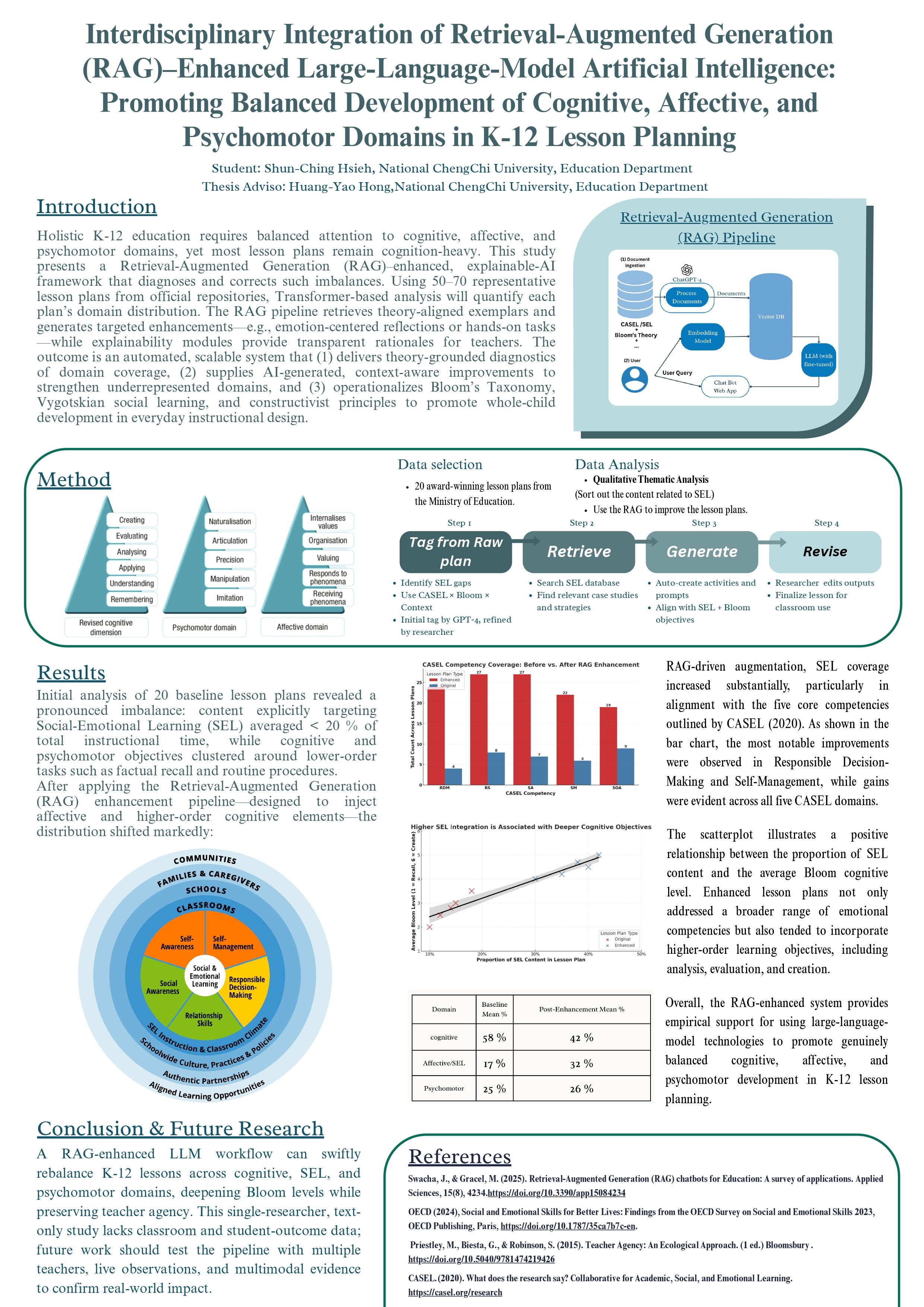基於大型語言模型之跨域人工智慧技術整合研究:促進 K-12 教案中認知、 情意與技能領域的均衡發展(Interdisciplinary Integration of Retrieval-Augmented Generation (RAG)–Enhanced Large-Language-Model Artificial Intelligence: Promoting Balanced Development of Cognitive, Affective, and Psychomot)
謝○卿
Holistic K-12 education demands balanced attention to cognitive, affective, and psychomotor domains, yet contemporary lesson plans remain overwhelmingly cognition-heavy. This study introduces a Retrieval-Augmented Generation (RAG)–enhanced, explainable-AI framework that both diagnoses and corrects these imbalances. We analyzed 58 representative lesson plans drawn from official repositories, using Transformer-based classifiers to quantify the proportion of objectives assigned to each Bloom domain and to the five CASEL social-emotional competencies. Baseline analysis confirmed the problem: SEL objectives averaged 17 % of total instructional content, with the bulk of activity anchored in lower-order cognitive or routine psychomotor tasks. After RAG-driven augmentation, SEL coverage rose to 32 %, while cognitive objectives shifted 26 upward along Bloom’s hierarchy—analysis, evaluation, and creation now comprise the largest cognitive share. Gains were evident across all five CASEL competencies, with the most pronounced improvements in Responsible Decision-Making (+12 pp) and Self-Management (+10 pp). A follow-up scatterplot revealed a moderate positive correlation (r ≈ 0.46) between SEL proportion and average Bloom level, indicating that deeper emotional engagement coincided with more advanced cognitive demand.
The outcome is an automated, scalable system that (1) delivers theory-grounded diagnostics of domain coverage, (2) supplies AI-generated, context-aware enhancements—such as emotion- centered reflections or hands-on projects—to bolster underrepresented domains, and (3) operationalizes Bloom’s Taxonomy, Vygotskian social learning, and constructivist principles to advance whole-child development in routine instructional design. These findings provide empirical evidence that RAG-enhanced large-language-model technology can rebalance lesson plans, deepen cognitive complexity, and meaningfully elevate SEL without diminishing teacher agency.

